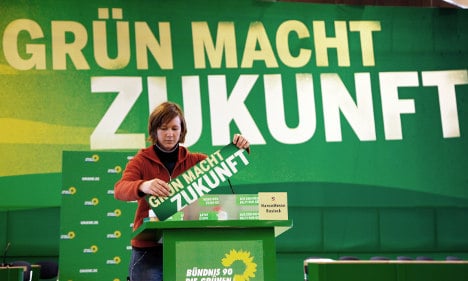The Forsa poll taken for news magazine Stern and broadcaster RTL put the environmentalist Greens’ support on 24 percent – one point ahead of the Social Democrats (SPD).
The result is a shot in the arm for the Greens’ claim to have become the strongest opposition to Angela Merkel’s ruling centre-right coalition.
The Greens appear to be benefiting from the SDP’s slide, having gained one of the two points lost by the SDP since last week’s poll. The SPD dropped from 25 percent a week ago to 23 percent this week, while the Greens gained a point from 23 per cent to 24 percent.
The turnaround represents a major shift in Germany’s political landscape, as the SPD has always been regarded – along with Merkel’s Christian Democrats (CDU) – as one of the dominant Volksparteien or “people’s parties.”
Merkel’s Christian Democrats and their Bavarian sister party the Christian Social Union picked up the other point lost by the SDP to poll 31 percent of the vote. Their junior coalition partners the Free Democrats continue to languish on a paltry five percent of the vote.
Manfred Güller of the Forsa Institute told Stern that the SDP’s efforts to appear more left-wing than they actually are has left voters feeling the party is misrepresenting itself.
“It’s not the claims against the government’s energy decisions or their criticism of the changes to Hartz IV that seem to be the problem, it’s that many important SPD party members are far too centrist,” he said.
Güllner believes that the Greens new found strength in the changing political climate following the September 2009 elections comes from their top-level politicians such as Jürgen Tritten and Renate Künast, who appear solid and trustworthy to voters.
“The Greens are benefiting from the weakness of the other parties” added Güllner. “They’re picking up voters from the SPD, but also from the CDU coalition.”
Overall, however, the left continues to dominate the polls, with the Greens and SDP jointly polling 47 percent and Merkel’s CDU/CSU-FDP coalition reaching 36 percent.
The Forsa Institute, one of Germany’s leading pollsters, surveyed 2,501 people between the 27th September and 1st October.
The Local/DAPD/rm




 Please whitelist us to continue reading.
Please whitelist us to continue reading.
Member comments